Pranav Jawale
Context-based out-of-vocabulary word recovery for ASR systems in Indian languages
Jun 09, 2022
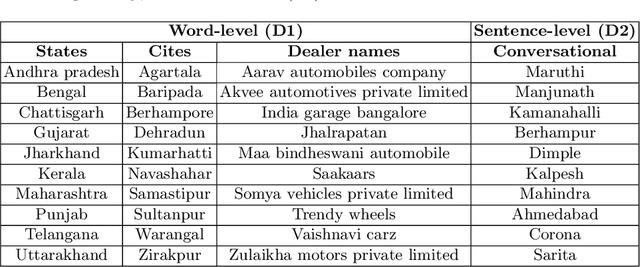
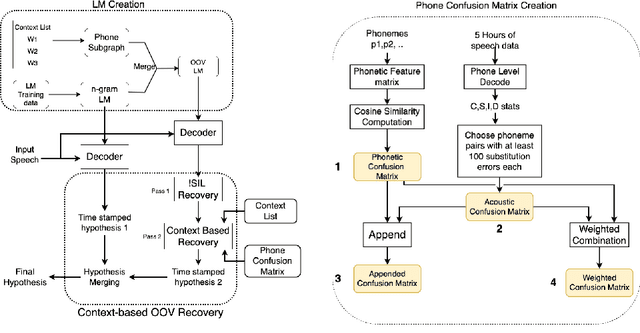
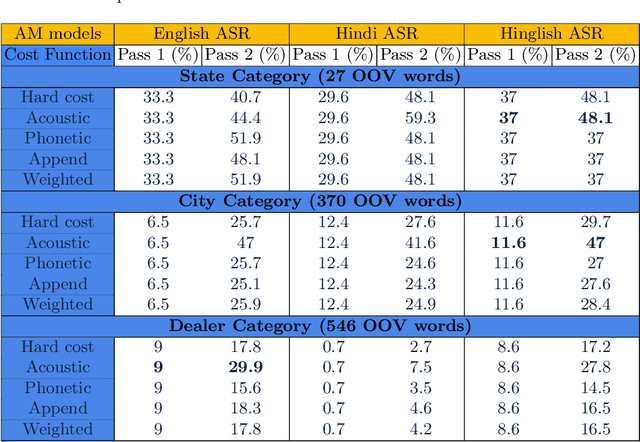
Abstract:Detecting and recovering out-of-vocabulary (OOV) words is always challenging for Automatic Speech Recognition (ASR) systems. Many existing methods focus on modeling OOV words by modifying acoustic and language models and integrating context words cleverly into models. To train such complex models, we need a large amount of data with context words, additional training time, and increased model size. However, after getting the ASR transcription to recover context-based OOV words, the post-processing method has not been explored much. In this work, we propose a post-processing technique to improve the performance of context-based OOV recovery. We created an acoustically boosted language model with a sub-graph made at phone level with an OOV words list. We proposed two methods to determine a suitable cost function to retrieve the OOV words based on the context. The cost function is defined based on phonetic and acoustic knowledge for matching and recovering the correct context words in the decode. The effectiveness of the proposed cost function is evaluated at both word-level and sentence-level. The evaluation results show that this approach can recover an average of 50% context-based OOV words across multiple categories.
Non-native English lexicon creation for bilingual speech synthesis
Jun 21, 2021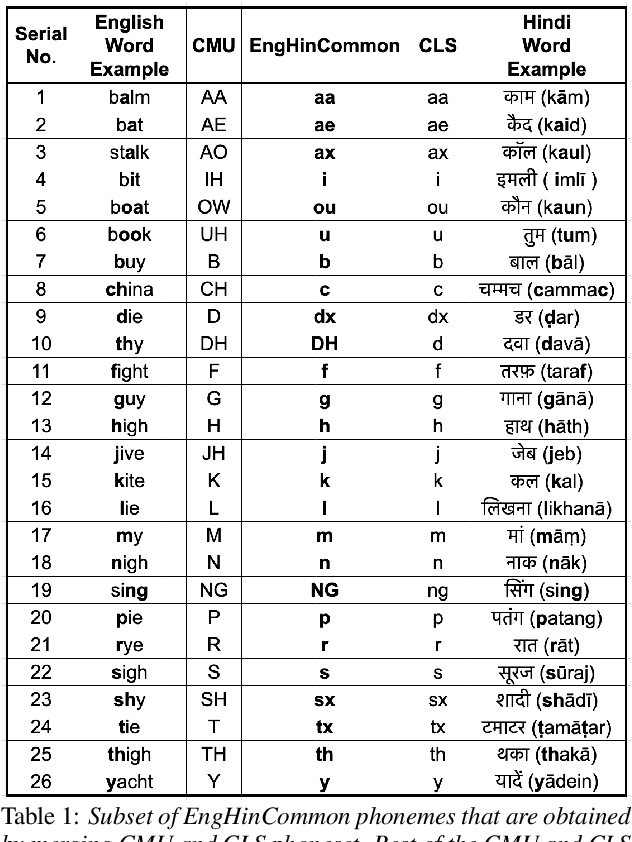
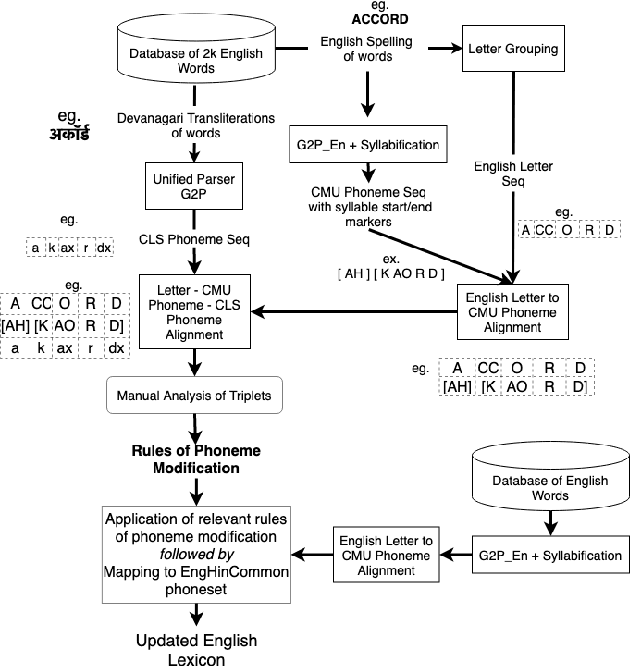
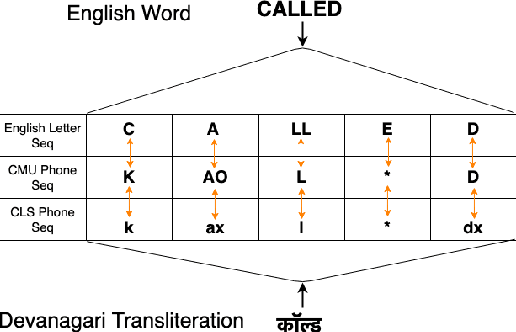

Abstract:Bilingual English speakers speak English as one of their languages. Their English is of a non-native kind, and their conversations are of a code-mixed fashion. The intelligibility of a bilingual text-to-speech (TTS) system for such non-native English speakers depends on a lexicon that captures the phoneme sequence used by non-native speakers. However, due to the lack of non-native English lexicon, existing bilingual TTS systems employ native English lexicons that are widely available, in addition to their native language lexicon. Due to the inconsistency between the non-native English pronunciation in the audio and native English lexicon in the text, the intelligibility of synthesized speech in such TTS systems is significantly reduced. This paper is motivated by the knowledge that the native language of the speaker highly influences non-native English pronunciation. We propose a generic approach to obtain rules based on letter to phoneme alignment to map native English lexicon to their non-native version. The effectiveness of such mapping is studied by comparing bilingual (Indian English and Hindi) TTS systems trained with and without the proposed rules. The subjective evaluation shows that the bilingual TTS system trained with the proposed non-native English lexicon rules obtains a 6% absolute improvement in preference.
 Add to Chrome
Add to Chrome Add to Firefox
Add to Firefox Add to Edge
Add to Edge